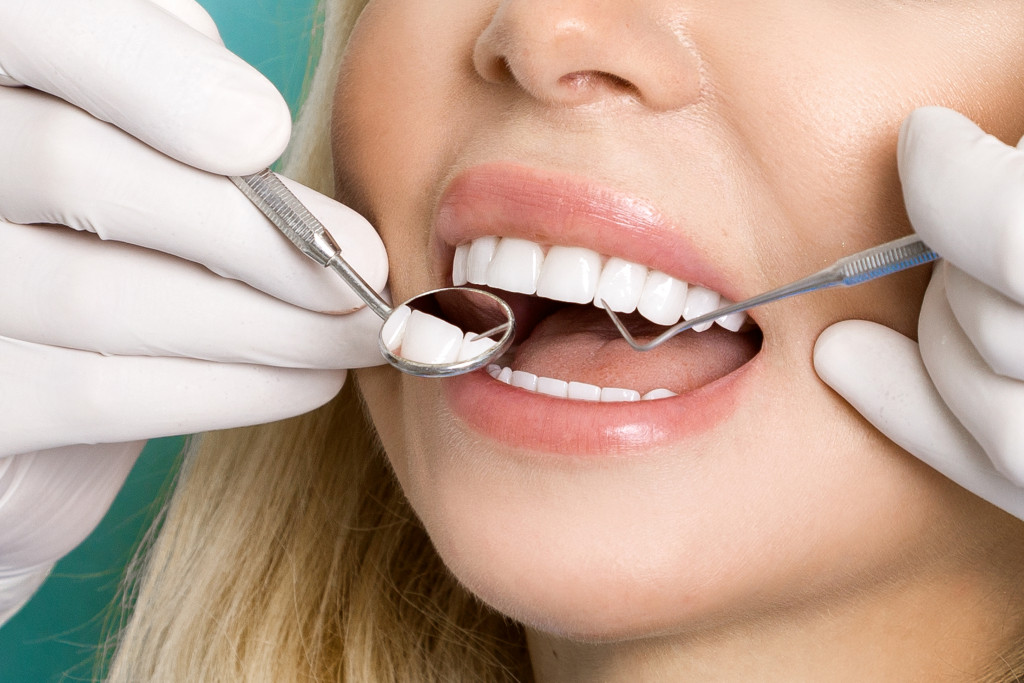The health of your teeth and gums is important for more than just cosmetic reasons — it’s essential for your overall health, as well. Good oral hygiene habits are key to keeping your teeth and gums healthy, so make sure you follow these eight best practices!
1. Brush Your Teeth at Least Twice a Day
Your dental health can be negatively impacted by a variety of factors, including the foods that you eat and the conditions where you live. Brushing your enamel before going to bed at night is just one of many ways to remove harmful substances from your teeth throughout the course of a day.
In addition, get into the habit of brushing after meals, too! The American Dental Association recommends brushing for two minutes after every meal, so make sure you’re spending enough quality time with your toothbrush each day.
2. Swap Out Your Toothpaste for Fluoride-Free Options
Many people are surprised to learn that fluoride isn’t the only way to care for your teeth. Several types of toothpaste on the market are developed without fluoride, which means they don’t contain the sodium fluoride ingredient that is common in most brands.
Fluoride-free toothpaste can be just as effective at cleaning and whitening your teeth as products containing sodium fluoride, so consider using it if you don’t like certain side effects associated with fluoride-containing toothpaste (like sensitive teeth).
3. See Your Dentist Twice a Year
It’s easy to ignore your teeth and gums when you feel like they’re healthy, but it’s just as important to monitor them for problems before they become more serious.
Visit dentist’s office at least twice a year with a dental cleaning and check-up. Your dentist will not only look for potential health issues, including cavities and gingivitis; he or she can also offer valuable advice about how to keep your smile looking its best!
4. Floss Daily
Keeping plaque from building up on the surface of your teeth is difficult when you don’t floss daily (if you want food caught in between your teeth to stay there, that is).
Fortunately, most people find that they enjoy flossing once they start doing it — and the benefits of flossing are substantial. Flossing helps to remove food particles and plaque from between your teeth, ensuring that you won’t need professional cleaning more often than necessary (and helping to prevent tooth decay).
5. Eat Healthy Foods
Many foods can contribute to cavities or simply affect how white your smile is — but the good news is there are several healthy options for great oral health as well!
For instance, oranges and strawberries can be good for your teeth if you eat them instead of drinking juice (which is high in natural sugars).
In addition, many vegetables have properties that inhibit bacterial growth on teeth — broccoli sprouts especially have been shown to have a significant strengthening effect on enamel and can even lead to whiter teeth!
6. Limit Your Intake of Sugar and Starches
Sugar-free gum and other foods that contain sugar substitutes can help you limit your sugar intake (and improve how you feel about the breath you get from chewing), but limiting the amount of sugary or starchy food in your diet is best for your teeth.
Some experts recommend eating less than 20 grams of sugars per day; while it’s not always easy to keep track of such a small number, it can make a big difference over several years.
7. Drink Wisely
Drinking too many fluids throughout the day isn’t good for your body, but it can also contribute to tooth decay. In addition to taking care not to drink too many sugary beverages, you should also avoid drinking a lot of water in a short period if your teeth are already full of liquids. Swishing around too much fluid in your mouth can lead to the development of cavities!
8. Quit Smoking
Smoking cigarettes is a well-known health hazard, and it’s also terrible for your teeth! Nicotine in tobacco reduces saliva flow and encourages plaque buildup on teeth, leading to tooth decay or even gum disease (which doesn’t always hurt).
In addition, smoking puts more wear and tear on your enamel than just about anything else — so quitting can be incredibly beneficial for both hygiene and overall health.
If you want to have healthy teeth and gums, follow these eight best practices! Eating a healthy diet, flossing daily, seeing your dentist twice a year, and quitting smoking are all important for keeping your smile looking and feeling great. In addition, try using fluoride-free toothpaste and limiting your sugar intake. By following these tips, you can keep your pearly whites shining for years to come!

